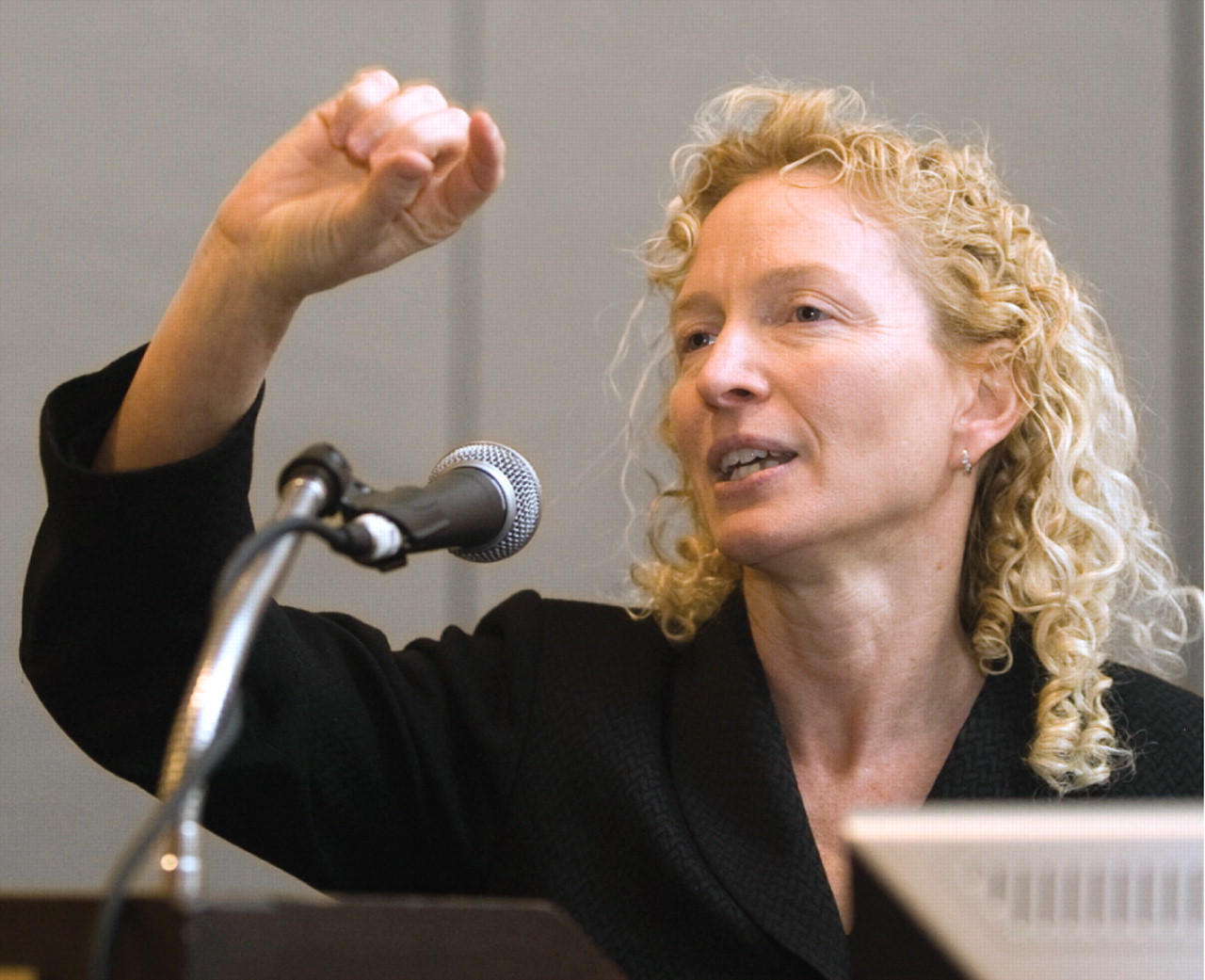Industry influence in medicine, including psychiatry, is wide, deep, and ubiquitous, and simple solutions regarding conflict-of-interest issues are not likely to be found. That much was agreed upon by a panel of five psychiatrists—including experts in ethics, research, and medical education—at a presidential symposium at APA's 2009 annual meeting in San Francisco in May.
Outgoing APA President Nada Stotland, M.D., who served as a discussant, said that at an organizational level, realignment of APA's relationships with industry is likely to involve difficult financial trade-offs, such as when the Association opted to phase out industry-supported symposia that are known to be a popular attraction at APA's meetings; or it may involve eliminating worthy programs such as fellowships for minorities that are supported by industry.
Panel members were united in saying that pharmaceutical marketing, with demonstrable effects on physician behavior, has reached into all areas of medicine, including research, education, and clinical practice. But while APA, and individual psychiatrists, may need to terminate or realign some forms of collaboration with industry, the various academic, private, and industry stakeholders should not be singled out for scorn; rather, new ways of collaborating with industry must be devised, with appropriate safeguards in place.
“The pharmaceutical industry makes products that help people,” said Jonathan Weker, M.D., a private practitioner from Montpelier, Vt., and APA Assembly member who has argued for years that the Association needs to extricate itself from the grip of industry. “Pharma is not the evil empire. We have to figure out a new relationship with industry.” (See
Adopting a 'Professional Paradigm' for comments by Weker about the evolution of the relationship between physicians and the pharmaceutical industry.)
The five panel members were, in addition to Weker, past APA President Paul Appelbaum, M.D.; Laura Roberts, M.D., chair of a committee to revise the ethics principles for APA; Joel Yager, M.D., a professor of psychiatry at the University of Colorado; and David Baron, D.O., chair of the Department of Psychiatry at Temple University School of Medicine.
Weker's comments reflected an awareness both of the pervasive influence of industry in all areas of medicine and of the difficulty of extricating medicine from business interests that, after all, manufacture products that benefit patients. As Yager said, quoting a colleague, “If it weren't for pharma, we would still be giving people thorazine.”
Nor is collaboration with industry the only, or the most pernicious, conflict of interest in medicine. Baron, who wondered about the negative consequences of cutting all ties with industry, noted that his institution monitors all physicians on their patients' length of stay in the hospital.“ Length of stay has a lot to do with hospital reimbursement.... I would posit that that is a much greater conflict of interest.... This will affect my reimbursement, so I have a conflict of interest to get [a patient] out earlier.... Only focusing on pharma conflicts is a mistake.”
Study Design Modifications Skew Results
Yet pharmaceutical-industry influence on medical education and clinical decision making has rapidly become one of the most talked-about subjects in American medicine.
While most physicians are not inclined to admit that their behavior is influenced by industry marketing, published research suggests otherwise, said Appelbaum, who presented an overview of that research.
“We know from multiple studies that meeting with pharmaceutical representatives and accepting samples and meals from industry correlate with increased requests for formulary additions of new, expensive medications; prescribing of the new medications; and decreased use of generic drugs,” Appelbaum said. “Frequently these decisions fail to take into account that the newer medications are higher cost and frequently have not demonstrated higher levels of efficacy than the older medications.
“Moreover, by definition newer medications with less of a track record leave us inherently uncertain about their long-term consequences,” he said. “There are those who believe the high incidence of metabolic side effects associated with second-generation antipsychotics was driven by the rapid adoption by the field of those new medications before we had a chance to learn what their longer-term consequences might be.”
Published studies supported by industry need careful scrutiny. Appelbaum presented data indicating that studies showing positive results for a sponsor's product are three to four times more likely to be published than are negative ones. Negative studies are liable to go unpublished or their results may be spun by post hoc analysis highlighting positive results for a subgroup of patients, though there was no benefit shown for the sample as a whole.
Yager outlined a long list of design modifications that are sometimes employed to skew results to a positive outcome for a sponsor's product. These include using dosages of a comparator drug that are far outside the normal range, using self-serving measurement scales that lead to misleading conclusions, masking unfavorable side effects, cherry-picking subjects for certain characteristics, and touting nonsignificant but favorable differences and negating dropout differences statistically.
Conflict-of-Interest Education Possible
So what is to be done?
Roberts reminded psychiatrists that overlapping commitments are innate to being physician-leaders who must play multiple roles and that the potential conflicts of interest that arise out of those overlapping commitments can be managed.
“Overlapping roles of professionals are necessary, but they always introduce ethical vulnerabilities,” she said. “So instead of approaching these overlapping roles and potential conflicts of interest as something horrible that 'other people do,' I would much rather we brought this back home and acknowledge that we encounter these issues all the time. As professionals we are expected to bring expertise and sophistication to the management of these complex issues.”
She urged psychiatrists to acquaint themselves with the Institute of Medicine report, “Conflicts of Interest in Medical Research, Education, and Practice.” The 300-page report contains 16 recommendations addressing all areas of industry involvement in medicine (Psychiatric News, June 5).
Appelbaum was chair of a work group that developed guidelines that are undergoing consideration within APA addressing relationships with industry for the individual psychiatrist.
Roberts also said that education around issues related to conflict of interest is possible and proven to be effective. She presented data from her research showing that medical students can be taught, using a structured, criteria-based educational intervention, to identify ethical problems in clinical trials.
The study, “Teaching Medical Students to Discern Ethical Problems in Human Clinical Research,” appeared in the October 2005 Academic Medicine.
Yager described efforts at a number of academic medical centers to teach students and trainees about conflict of interest. At UC Davis, for instance, pharmacy students act as drug-company representatives in role-playing exercises with medical students, and at the Mayo Clinic fourth-year students take a pharmacology course that includes critical analysis of drug advertisements.
The University of Colorado has developed an intensive four-year course in evidence-based medicine that includes critical evaluation of studies and instruction in the kind of design modifications that are used to distort findings.
“The goal is to sow thoughtful skepticism,” he said. ▪

